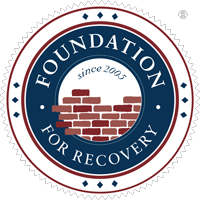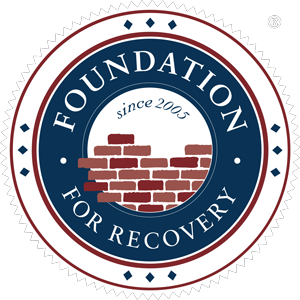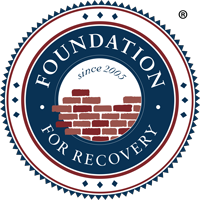Nevada Peer Leadership Advisory Council Meeting
May 12, 2015
UNR Redfield Campus 9:00 am to 4:30 pm
The meeting started at 9:07 am
Attendees : Daniel Fred, Nancy Snyder, Crystal Hallock, Barbara Jackson, Alyce Thomas, Autumn Smith, Skip Farley, Denna Atkinson, Michelle Berry, Jeanyne Ward, Camille Jones, Jo Anna Rios, Robyn Priest, Luana Rich.
Steve Burt and Mary Wherry attended for a presentation from 2:00 pm – 3:00 pm
Members absent: Nick Matlavage and Ali McCurdy
Housekeeping announcements were made by Jeanyne and Welcome by Daniel
Each council member introduced themselves
Agenda Item 1
Review and edits of ByLaws. The council was able to get through the ByLaws until Article V section 3. Jeanyne will e-mail the council these edits and ask that they go through the BYLaws and respond with any changes.
Agenda Item 2
PAN (Peer Alliance Network) presentation 501 C3– 40 members, started in Sept 2014 ….all members are contributing. JoAnna is Pres South, Camille is Vice Pres North. Working together to unify the state. With Little resources, getting the word out, getting license, putting together website http://www.peerallianceofnevada.org/ and ByLaws. PAN is a strong voice for peers in Nevada. They accept donations. Need to fundraise. Need experienced grant writing. The website includes resources, newsletters. Robyn Priest with Peerlink is helping mentor and mold organization. PAN represents mental health and co-occurring. What’s the difference between PAN vs NAMI? NAMI does peer support family involvement and has family support. PAN is ran by consumers for consumers. You cannot be a member of PAN if you are not a direct consumer. No Family members allowed unless they are consumers as well. PAN wants to focus on education and prevention. 1st training coming up in Aug. 5 scholarships available– held in August in L.V. It will be a wellness training. Peerlink has focus areas. PAN Nevada chose peer wellness training. 5 days. Simple peer support wellness. Not a certification. Co- facilitator from N Dakota to come and co facilitate with Robyn Priest. The hope is to keep training people to do presentations. Peerlink is a SAMSHA grant that ends sept 30. Peerlink is technical assistance center that gave PAN 5K to get them started. PAN is in a position to apply for a few National funding opportunities. Goal to be first state to require mental health education to be required in state education curriculum. Adding a resource directory on their website. WRAP – wellness recovery action plan. Peer program. Providers should not be delivering it, peers should be delivering it.
Questions? Daniel, how do we collaborate with the Peer Council? Link to PAN on peer website. PAN brought brochures. Be sure to discuss PAN with others, spread the word. Invite PAN to events, Jeanyne to invite them to the NNBHC and Camille to present at the June meeting. How do you become a member? Website. Camille passed our brochures. Michelle mentioned the State of Nevada grant writing team. Michelle to send them their info.
Agenda Item 3
Conversations café. Members were divided into three groups of 3 to answer 3 questions about the direction of NPLAC. Each group was given 30 minutes to answer and discuss the questions. The council then discussed each group’s answers and narrowed down the focus.
Question 1: What do you hope Nevada Peer Leadership Advisory Council to accomplish?
Voice for advocacy
Helping peers navigate the system
Educate public on how peer support is an evidence based practice, validity
Push certification
Establish grievance policy
Setting clear parameters that eliminate ambiguity
Disciplinary when state agencies are cruel to consumers, corrective action plan for state
Community outreach
Create an app/website/online training for CEU’s for certification
Code of ethics
orientation
Question 2: How will NPLAC work to achieve the goals set in question #1?
Be a voice advocate in legislature
Continue to advocate even after the session is over for 2015.
Legislative listserv, a way to contact them, visit them (educate and inform not lobby)
Subcommittee for legislative action
Establish a good reputation (a position paper written by NPLAC) who we are, what we stand for, what we want peer support to look like in Nevada.
Put the APP on the backburner for now
Continue to talk about NPLAC and get the word out
Put together a code of Ethics and Orientation
If we ever get lost, always go back to mission and vision statement
Remember to represent peers as a whole and not our own interests
Curriculum (depending on what happens in legislature)
Grievance (networking and connecting with correct agencies, identify the PI)
Work as a team
Reach out to community
Question 3: How will NPLAC engage community partners?
Attend other meetings
Attend trainings
Reach out personally (at jobs, engage community partners, out in community)
Be a voice
Advertising
E-mails, flyers, pamphlets
Articles in PAN newsletter
Speaker bureau
Break for lunch (Sponsored by CASAT)
Agenda Item 4
Robyn Priest presentation – Peerlink. http://www.peerlinktac.org/ No formal power point, informal conversation with Robyn. Discussed different States certification processes and trainings. IC&RC certification process is primarily addiction focused.
Per Robyn, 17 states who have gone with IC&RC and only 4 have mental health…mostly addictions peers. Iowa and Colorado are doing joint peer support recovery (mental health addiction and family support). 19 states are utilizing their state certification process. Majority did not thru legislation. The states decided in their own division who would be their certifying body. CASAT cannot be the certifying body because they do the training.
Denna mentioned some organizations in Nevada are offering and charging money to offer a “Peer Certification” and there is no “Peer Certification in the state of Nevada. Our state wants an integrated model so everyone is doing the same thing.
Per Robyn, Colorado’s integrated process of certification is to look at the requirements of the training (not certify a training body). There could be several different trainings that would qualify to the board. So the people have a choice of trainings provided and different curriculums.
There might be an opportunity to grandfather some courses or hours if you work in the field (log hours) into the curriculum. CASAT UNR certificate might be allowed to use in lieu of some of the curriculum.
Five states go thru local university. A couple of states go through an external body to certify and train. Most states allow the CEU’s to be flexible based on the persons job. INEPS trying to create a Nationwide peer certification. About ½ of the states have reciprocity. Nevada breaking new ground trying to have joint curriculum and joint representation.
Robyn mentioned the Council can design a certification process and present it to the state rather than wait for legislature.
Luana mentioned a regulation process will happen with public hearings and public comment if either or both bill gets passed this legislative session.
Luana’s opinion about the bills? A lot will depend on the DPBH and Kevin Quint working with board of examiners for LADCS to work together on an acceptable amendment to AB85.
Robyn asked council if we have a common view about how we want the bills to go. Maybe the council should put together a simple statement about how we want to see the bills go.
Agenda Item 5
Peer Website update – Skip Farley
Skip put NVPPS.org on the overhead board and walked the council through the drop down menus. Skip asked if everyone had looked at the collateral that was sent out to the Council. Jo Anna asked if we could change the website language to reflect the language that we added to the ByLaws.
Robyn asked why the website is called the Nevada Partnership for Peer Support. Because that was what we called the website when it was BRSS TACS.
Who is in charge of the website? Skip has been handling this for now. Maybe the council should put together a website committee.
Skip asked for a vote to final approval of collateral so he can get it on the website, must be live before June 30th. The website will be a working evolving website.
Nancy moved that we accept the collateral as is, motioned second, and the motion was approved by the council.
Barbara commented to give Skip a round of applause for his hard work on the website
Agenda Item 6
Steve Burt Presentation of AB85 (individual Peer Certification bill) Steve was on the original BRSS TACS committee. One of the requests was to get individual peer support certification through board of examiners for LADCS which Steve is also on the board because no other board wanted to carry the certification. AS subcommittees met, developed the training curriculum for peers, started with Medicaid requirements then added on. Went with IC&RC requirements. Over last year, board of examiners had conversations with Medicaid. At Board level, if we increased substance abuse counselor’s requirements, we left a gap for entry level peer support specialists. Certification for peer support specialists helped fill the gap. Steve did not like the language and wanted to make sure it was not exclusive of mental health professionals. Passed into the Senate. Richard Whitley wanted an agency model SB489. Steve never thought the agency model was in conflict with the individual model for AB85. Last week there was some pushback from the State on AB85. In the process of trying to reorganize AB85 there was a time crunch. Steve took all reference of peer support recovery out of AB85 so the rest of AB85 could be passed.
Mary Wherry presented on AB489. In the context of incremental policy making. Mary was the Deputy administrator at Medicaid for 8 years before the DPBH. Part of struggle has been Nevada has not been able to get peer supporters to bill Medicaid. They have been using block grant $$ to pay peer salaries. Mary gave everyone a handout on requirements for peers to bill Medicaid that outlined Chp 400 of Medicaid manual.
Alyce mentioned there is not equity between provider type 14 and 17 hours that you can bill for QBA. Mary said we need to start battling down the doors of Medicaid, CC Richard Whitley. Write letters, provide documentation. Present on the National average for peer support, the outdated training, etc.
PAN and the Peer leadership Council need to use their voice to oppose what’s going on with Medicaid for peer support services for mental health provider’s type 14. Mary suggested that part of the story we need to tell is to access the data from the state and do a cost benefit analysis based on the data.
Why were peer supporters on state payroll not been brought to the table about this discussion? Why were the peers not involved in developing the bill drafts?
Steve mentioned the SAPTA advisory board was not involved and community stakeholders were no involved. Pervasive nature of the State is the perception of a provider in the field.
Where are the mental health block grant dollars going? Not to community providers.
Alyce mentioned some of the language in SB489 is offensive. It is being heard tonight at Senate finance at 6pm. Mary mentioned the language is regulatory.
If SB489 passes what are affects to agency organizations? If it does not pass there is one less level of beurocracy and you still get to do your own thing. Benefit if it passes? It is regulated but community organizations will need to keep on top of the public meetings.
State to state comparison in Medicaid, per Mary, is it state planed or state waiver?
Barbara mentioned as a consumer she does not want SB489 passed? Do we want it? Will it hinder us as peers? Bill is written that peers do not have to be certified. Robyn said nationally the movement is towards an individual certification for peers.
Robyn asked if she can access current Medicaid data. Mary said you can ask Medicaid to run a report.
Agenda Item 7
Assign tasks going forward: Should we move forward planning tasks based on earlier conversation? Or do we write a letter today to present to SB489 tonight at 6pm? Do we know enough about SB489? We can voice concern. Daniel suggested we break into subcommittee to put together a letter? Is there a consensus? Denna mentioned the language that FFR has expressed. Using Faces and Voices and SAMSHA model. Denna, Jo Anna and Robyn to write the letter.
Move to meet as a whole council quarterly. The subcommittees will check in monthly
Position paper subcommittee (Camille Chair, with JoAnna and Alyce)
Website (Skip Chair to add link to legislatures, JoAnna, Daniel)
Code of Ethics (Daniel chair, Barbara, Alyce, Crystal)
Listserv (Nancy chair and Barbara)
Outreach to community (Autumn chair)
The chairs to let Jeanyne know dates to meet so she can help set up conference call lines. Robyn and Luana to help with technical assistance.
JoAnna read the letter that will be sent in by the Peer Council to express concerns to SB489 today. The Council approved. Camille e-mailed the letter to the senator’s e-mails given to her by Michelle Berry. Jeanyne will attach a copy of the letter with the notes.
Jeanyne thanked everyone for coming and reminded the council to submit any travel receipts to her by next week.
We still need to fill 2 seats on the council and Nick Matlavage has not attended since he has been elected. Jeanyne will e-mail him to ask if he is still interested.
Motion to elect Steve Burt to the council. Motion second, vote approved. Steve is now a member of the NPLAC council.
NPLAC took a group photo for the website.
Motion to adjourn the council at 4:26 pm, motion second, approved. Meeting ended at 4:27pm










